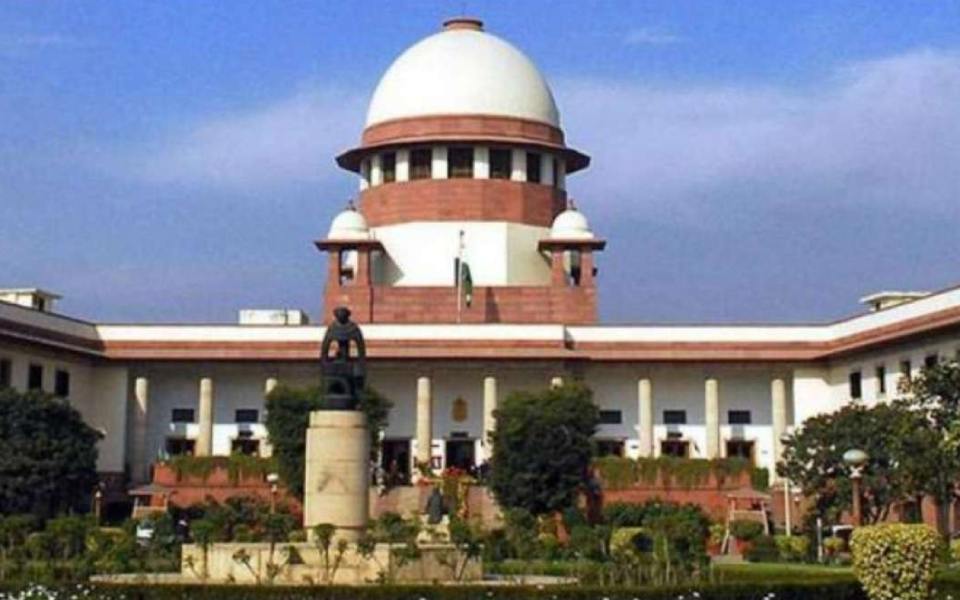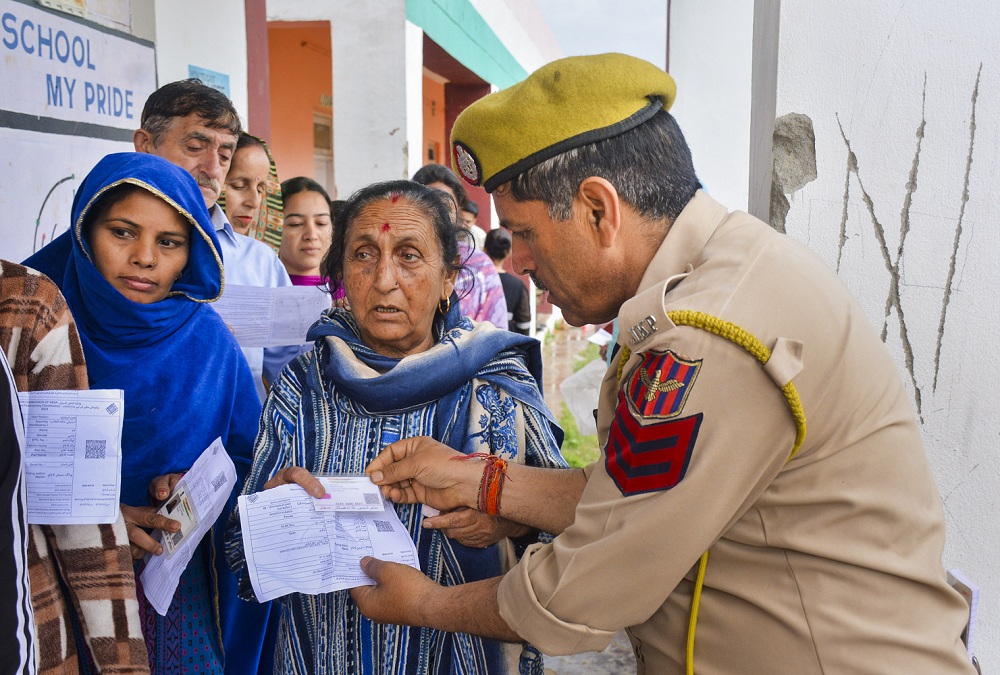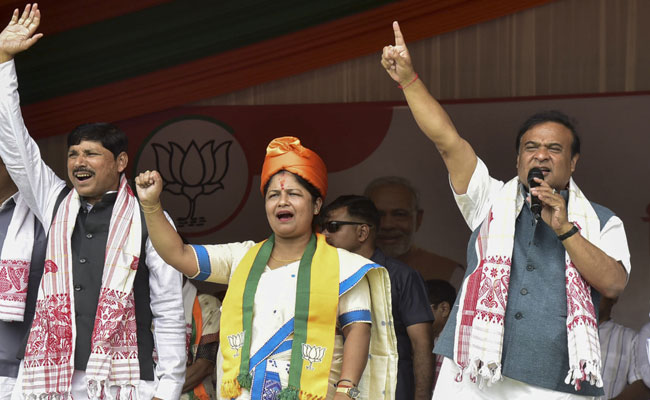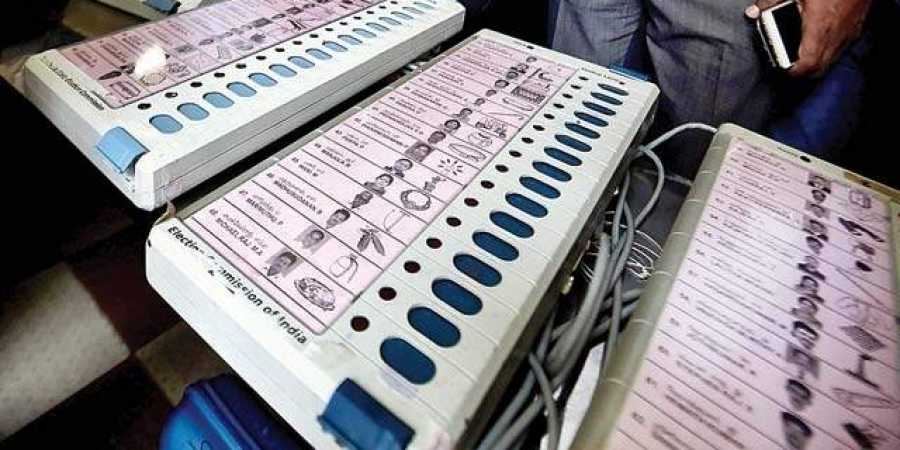Bengaluru, May 15: The Karnataka government Wednesday said it would take up cloud seeding by the end of June, amid reports forecasting deficit rainfall.
The government has already called for tenders for two years and will spend an estimated Rs 88 crore for the purpose.
"In newspapers we are seeing that in 2019 there is a possibility of deficit rainfall.
We have already taken precautionary measures regarding this- for 2019-20 and 2020-21-for two years we have decided to implement cloud seeding,"Rural Development Minister Krishna Byre Gowda said.
He said the government would award the tender in a week to 10 days.
"By June end, we will begin the cloud seeding process in the state. The tender has been called for two years together.
An expert committee had also given similar recommendation," he said.
For two years together, the estimated cost would be Rs 88 crore, he said, briefing media persons after Chief Minister H D Kumaraswamy's video conferencing with Deputy Commissioners of districts and CEO of Zilla Panchayats on drought in the state.
Pointing out that cloud seeding earlier used to be done by August, by which time the monsoon would have almost ended, Gowda said that to avoid it, the government decided this time to go for the exercise at the onset of the monsoon.
There will be two centres at Bengaluru and Hubballi for cloud seeding, with two aircraft, he said.
"If there is good rain in one region, the centre there can be shifted as additional centre to where there is lack of rain. It will also be based on cloud cover," he said.
Revenue Minister R V Deshpande said the government was taking steps to manage drought on a "war footing" and that he has directed all Deputy Commissioners and CEOs to tour the districts to assess the situation.
Tahsildars have also been asked to travel to villages, panchayat headquarters and urban areas to understand the ground reality and work effectively, he said.
He also termed as 'far from the truth,' Opposition leader B S Yeddyurappa's criticism of the government's management of drought and pointed out that due to the model code of conduct in force, the Chief Minister and Ministers had no powers to hold review meetings until recently, when they were permitted by the Election Commission to do so.
The ministers said the government has taken steps to provide drinking water through tankers, wherever there was shortage.
In most places there was fodder stock for 12 weeks and corrective measures were being taken in areas facing shortage.
Gowda said a total of 2,999 villages in the state faced acute drinking water shortage.
Among them in 1632 villages, 2322 tankers are being used to supply water and 1873 borewells have been taken on rent to provide water to 1367 villages.
Of the total of 6,428 urban wards, 451 wards are being provided water through tankers, he added.
"DCs have Rs 713 crore, it should be used for borewell and tanker payments.
Wherever new borewells are needed task forces have been given Rs 200 crore by RDPR department," they said, adding that call centres have been started at every taluk, district and also state level to address drinking water shortage.
Jobs were also being provided under MNREGA to stop migration of people from affected areas, they said.
Let the Truth be known. If you read VB and like VB, please be a VB Supporter and Help us deliver the Truth to one and all.
New Delhi (PTI): The Supreme Court on Friday sought replies of the Centre and the Assam government on a plea challenging the Citizenship (Amendment) Rules, 2024, meant to operationalise and regulate the process of grant of Indian citizenship to non-Muslim migrants who came from Pakistan, Bangladesh and Afghanistan before December 31, 2014.
A bench comprising Chief Justice D Y Chandrachud and Justice JB Pardiwala took note of the submissions of a lawyer representing petitioner Hiren Gohain, a Guwahati resident, and issued notices to the state government and the union ministries of Home Affairs and External Affairs.
The top court also ordered that the fresh plea be tagged with those pending on the issue.
The lates plea on the hugely contentious issue said, “The uncontrolled influx of illegal migrants from Bangladesh to Assam has caused huge demographic changes in Assam. The indigenous people, who were once the majority, have now become a minority in their own land.”
Recently, the bench, while refusing to stay the operation of the CAA Rules, asked the Centre to respond to the applications seeking a stay on their implementation till the apex court has disposed of the pleas challenging the validity of the Citizenship (Amendment) Act, 2019.
Gohain, in his plea, said the CAA Rules, 2024 are “ultra-vires to the Constitution” as they are “palpably discriminatory, manifestly arbitrary, illegal and against the basic structure of the Constitution”.
“It is stated that the impugned Citizenship (Amendment) Rules, 2024 violates the petitioners’ fundamental rights guaranteed under Articles 14 (right to equality), 15 (right against discrimination on basis of religion, race, caste etc), 19 (freedom of speech and expression), 21 (right to life and personal liberty) etc of the Constitution,” it said.
Gohain said he has filed the plea in his personal as well as in representative capacity of a majority of the indigenous people living in Assam and seeks enforcement of their fundamental rights.
Raising the issue of “uncontrolled" influx of illegal migrants from Bangladesh to Assam, the plea said it was not a communal issue.
“Neither it is a Hindu-Muslim or indigenous people v/s Bengali immigrant’s issue. Rather it is an issue of foreign infiltrators, be it Hindus or Muslims, who are inundating the land that for centuries has belonged to the indigenous people of Assam. In other words, it is an issue between Indians and non-Indians/ foreigners and one of grave importance for the entire nation,” it said.
“It is stated that according to the 2011 census the population of Assam was about 3.21 crores out of which only 1.34 crore people are indigenous Assamese. This figure includes the Assamese Muslims and indigenous people of the different tribes like Bodo, Missing, Rabha, Karbi etc.
Additionally, there are about 48 lakh people that comprise the tea tribes, it said.
"The sum total of the aforesaid two figures comes to about 1.82 crores. A major part of the remaining population of Assam essentially comprises Bengali speaking Hindus and Muslims and a minor part comprises Hindi/other language speaking people who have migrated from the other states of India,” the petition said.
With the unveiling of the rules on March 11, days ahead of the announcement of the Lok Sabha elections, the Modi government kicked off the process of granting Indian citizenship to persecuted non-Muslim migrants - Hindus, Sikhs, Jains, Buddhists, Parsis and Christians - from Pakistan, Afghanistan and Bangladesh.
The rules came into force with immediate effect, according to a gazette notification.
The massively polarising CAA had sparked protests in various parts of the country in late 2019 and early 2020 over its alleged discriminatory provisions.





